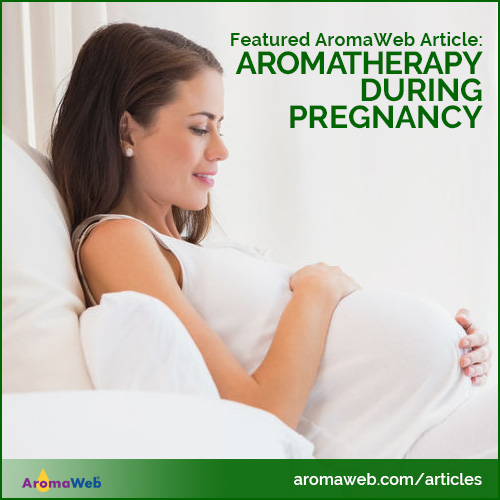Aromatherapy During Pregnancy

Aromatherapists, aromatherapy books and the public continue to debate which, if any, essential oils are safe enough to use during pregnancy. Some lean towards advising against the use of all oils during pregnancy, some towards advising that all oils are safe to use externally, and other opinions fall between both perspectives.
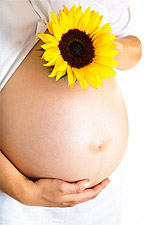
One of the causes for these extreme opinions is that there is "evidence" that particular oils are abortificacents (can cause spontaneous abortion), can cause uterine contractions, and others should not be used by diabetics (some women become temporarily diabetic during pregnancy). The problem with some of the evidence is that it is unclear if the oils used in the studies or reports were ingested internally or if used topically (internal use is not recommended without appropriate aromatherapy knowledge or the specific guidance of a qualified aromatherapist). These reports also do not indicate the dosages given. Additionally, I can't see what mothers would ever agree to being the part of a study where questionable oils are administered to them for the sake if seeing if there are complications in their pregnancy. Much of the available research appears to have been conducted on pregnant animals. This research may not even apply to human pregnancies. Thus, this is an area of aromatherapy that is quite unknown.
The most comprehensive source of documented essential oil safety information, including essential oil safety throughout pregnancy, can be found within Essential Oil Safety, Edition 2 by Robert Tisserand and Rodney Young. Refer to the below table for the oils that they forewarn should be avoided or used with specific topical restrictions during pregnancy:
Essential Oils That Should Be Avoided Throughout Pregnancy and Lactation:
- Anise
- Anise, Star
- Araucaria
- Artemisia vestita
- Atractylis
- Birch, Sweet
- Black Seed
- Buchu, Diosphenol and Pulegone CTs
- Calamint, Lesser
- Carrot Seed
- Cassia
- Chaste Tree
- Cinnamon Bark
- Costus
- Cypress, Blue
- Dill Seed, Indian
- Fennel, Bitter and Sweet
- Feverfew
- Genipi
- Hibawood
- Ho Leaf, Camphor CT
- Hyssop, Pinocamphone CT
- Lanyana
- Lavender, Spanish
- Mugwort, Great, Common, Camphor and Thujone CTs
- Myrrh
- Myrtle, Aniseed
- Oregano
- Parsley Leaf
- Parsley Seed
- Pennyroyal
- Rue
- Sage, Dalmatian and Spanish
- Ssvin
- Tansy
- Thuja
- Western Red Cedar
- Wintergreen
- Wormwood, All
- Yarrow, Green
- Zedoary
Essential Oils That Should be Restricted During Pregnancy
- Basil, Lemon (1.4% Maximum Dermal Limit)
- Boswellia, papyrifera (1.7% Maximum Dermal Limit)
- Champaca (Orange) Absolute (17.5% Maximum Dermal Limit)
- Lemon Balm, Australian (3.4% Maximum Dermal Limit)
- Lemon Leaf (1.2% Maximum Dermal Limit)
- Lemongrass (0.7% Maximum Dermal Limit)
- May Chang (0.8% Maximum Dermal Limit)
- Melissa (0.9% Maximum Dermal Limit)
- Myrtle, Honey (0.9% Maximum Dermal Limit)
- Myrtle, Lemon (0.7% Maximum Dermal Limit)
- Nasturtium Absolute (0.26% Maximum Dermal Limit)
- Tea Tree, Lemon (0.8% Maximum Dermal Limit)
- Thyme, Lemon (3.7% Maximum Dermal Limit)
- Verbena, Lemon (0.9% Maximum Dermal Limit)
Refer to Essential Oil Safety for more thorough information including details regarding the toxic constituents and their concentrations present within each of these oils. AromaWeb does not discuss or recommend oral dosing.
Source: Robert Tisserand and Rodney Young, Essential Oil Safety (Second Edition. United Kingdom: Churchill Livingstone Elsevier, 2014), 152, 156.
If you'd like to implement aromatherapy into your pregnancy, seek out the in-person guidance of a qualified aromatherapy practitioner in your area who will work with your doctor. All women are different in health and can have different requirements during pregnancy. A qualified practitioner should conduct a case history on you, evaluate exactly where along you are in your pregnancy, recommend blends suitable for you and discuss suitable dosages and methods of administration.
Some oils may be beneficial during the actual delivery despite their contraindications during the pregnancy. Your qualified aromatherapist can create a personal blend for you for use during the labor and delivery of your baby based on your aromatic preferences and personal health history.
Aromatherapy Stretch Mark Recipes
For natural recipes that can be adapted for use during pregnancy, see AromaWeb's Aromatherapy Stretch Mark Recipes page.
Additional Resources
Alliance of International Aromatherapists Pregnancy Statement
National Association for Holistic Aromatherapy (NAHA) Pregnancy Information
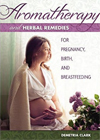
Aromatherapy and Herbal Remedies for Pregnancy, Birth and Breastfeeding
Author: Demetria Clark
Publisher: Healthy Living Publications
Copyright: 2015
Number of Pages: 192
ISBN: 1570673284 / 978-1570673283
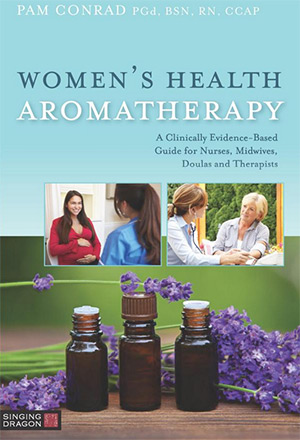
Women's Health Aromatherapy
Author: Pam Conrad, PGd, BSN, RN, CCAP
Publisher: Singing Dragon
Copyright: 2019
Number of Pages: 156
ISBN: 1848194250 / 978-1848194250
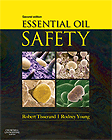
Essential Oil Safety:
A Guide for Health Care Professionals
Author: Robert Tisserand and Rodney Young
Publisher: Churchill Linvingstone
Copyright: 2013
Number of Pages: 784
ISBN: 0443062412 / 978-0443062414
